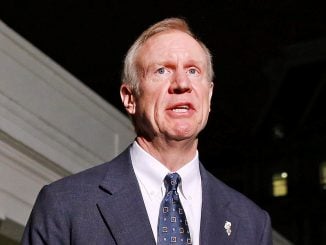ARLINGTON, Va. — Iowa Gov. Terry Branstad, whom President Donald Trump has tapped to become ambassador to China, said on Thursday he would work to open that market to U.S. beef exports when he begins his term.
“Mad cow disease is long since gone in this country, and there is no reason why the Chinese should continue to restrict American beef,” Branstad said at the U.S. Agriculture Department’s annual Agricultural Outlook Forum. “I want to serve it in the embassy, and I want to serve it in the ambassador’s residence, and I want the Chinese, with a growing population and interest in more protein, to have the opportunity to get that.”
Another priority is gaining quicker approval of genetically modified traits for corn and other U.S. agricultural exports headed to China, the world’s second-largest economy, he added.
Branstad said his longstanding relationship with Chinese leaders would be crucial in convincing them to relax the current process, noting that trust and friendship were important to business in the culture.
He has visited China at least six times, and Chinese President Xi Jinping has traveled to Iowa twice, including once while Branstad was governor.
Trade is important to U.S. farmers, whose incomes have declined for three years in a row due to slumping prices. The USDA recently said farm incomes would keep falling in 2017.Branstad said he was optimistic that new trade deals negotiated by Trump would improve market access that benefits rural America.
U.S. House Agriculture Committee Chairman Mike Conaway, who also spoke at the Forum, said the now-abandoned Trans-Pacific Partnership provided a good baseline for new bilateral agreements. Trump removed the United States from the years-in-negotiation TPP, which was heavily supported by the agricultural community, before it could be approved.
Conaway, a Republican U.S representative from Texas, added that he hoped the House of Representatives would take up the Farm Bill, which his committee is working on, late in the fourth quarter or in early 2018. The current Farm Bill, which covers everything from farm support programs to food stamps, expires at the end of 2018.



